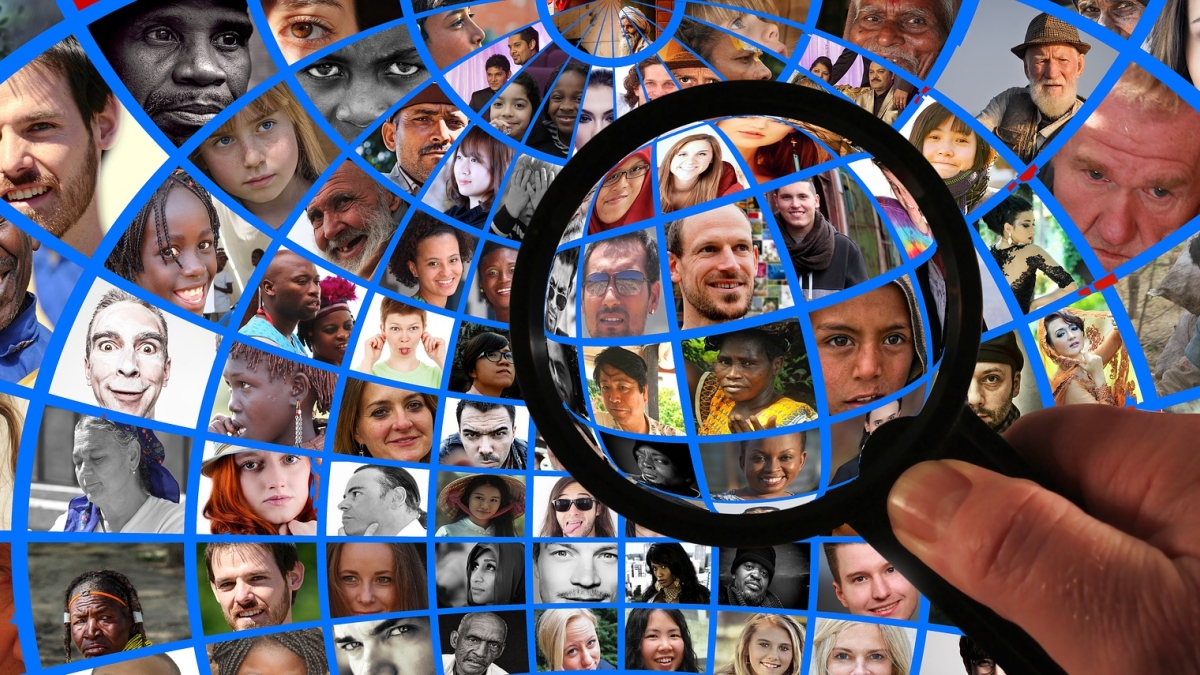Standing shoulder-to-shoulder with medical researchers in the efforts to stem the spread of the novel coronavirus, social scientists are taking the pulse of society and examining underlying conditions now magnified by the pandemic. The crisis, Arizona State University sociologists say, is shining a light on the cracks of human society that need to be addressed.
“It has laid bare the inequality of our society,” said Craig Calhoun, University Professor of social sciences. “It has laid bare our dependence on health workers, on delivery drivers, on the software to take classes online, on government funding to sustain the economy and support the unemployed, and on family, friends, and coworkers for simple social contact.”
Pointing to new practices that have made us intensely aware of the relationships and interactions we often take for granted, Calhoun says the pandemic, overall, has shown how much society matters. But it has also exposed how little some members of society matter.
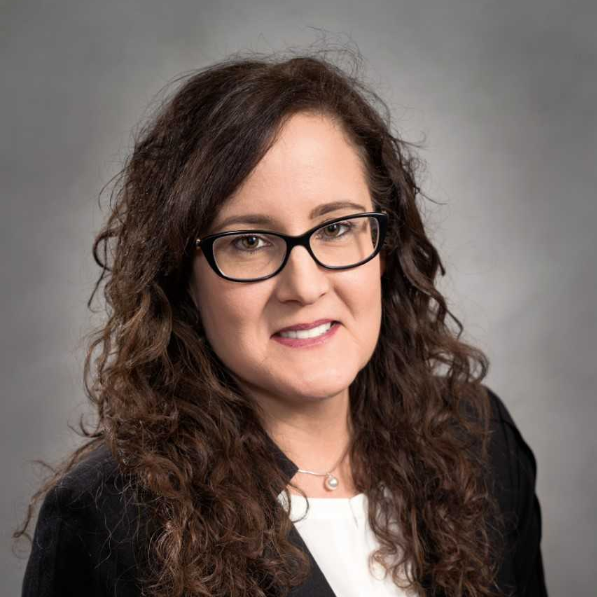
Nilda Flores Gonzalez
“Racial, gender, class, legal status and age inequality come to light and are exacerbated during times of turmoil,” according to Nilda Flores-Gonzalez, associate director and professor in the T. Denny Sanford School of Social and Family Dynamics. “Statistics show that not everyone is affected equally, and racial inequality is manifested in the higher rates of COVID-19 infection and death among blacks, Latinos and Native Americans."
She added, “the COVID-19 pandemic shows that not all lives matter equally in our society. ‘We are all essential,’ has replaced the ‘all lives matter’ motto that minimizes the plight of the disadvantaged.”
Applying their areas of expertise to diverse flashpoints along the sociological spectrum, ASU Now asked other ASU sociologists to weigh in on some of the underlying societal conditions that have been exacerbated in the midst of the pandemic.
Families and schooling
Jeanne M. Powers, associate professor, Mary Lou Fulton Teachers College

Jeanne Powers
"The massive forced shift to distance learning engendered by the school closures during the pandemic has exposed the deep inequities in families’ access to technology. A substantial proportion of families do not have the devices or internet access their children need to engage in technology-driven distance learning. Many schools and districts have stepped up efforts to provide laptops or tablets to students during the school closures, including buying them to lend to students. Providing internet access for families has been more challenging. These differences in access to technology are associated with race and class.
"And although technology can help the teachers and students who have access to it maintain connections while families shelter in place, it is not an adequate substitute for the face-to-face learning, social interactions and the sense of community and care that is fostered in K-12 schools. Public schools provide much needed routine, structure and safe spaces that many students need and abruptly lost when schools closed. Many districts are also providing food for families and adults in need. These are vital services that help address the massive wave of food insecurity the economic shutdown has created in the wake of large-scale job loss and unemployment."
Income volatility
Raphael Charron-Chénier, assistant professor of justice and social inquiry, School of Social Transformation
"With the rise of temp work, the gig economy and the increased proportion of jobs in the service sector — where tips can be an important component of earnings — a growing proportion of Americans aren’t sure exactly how large their next paycheck will be. The COVID-19 pandemic and the long-term effect it will likely have for demand for temp workers, gigs workers and especially workers in the personal service industry, which tend to be disproportionately women, means that the need for alternative financial services like payday loans and car title loans will go up.

Raphael Charron-Chénier
"After the Great Recession, data from the Survey of Consumer Finances show that the proportion of households having used a payday loan reached an all-time high. But this increase wasn’t equal across groups. For black families in particular, payday borrowing hit nearly 10% of households in 2013 — more than three times the rate for white households.
"Taking on payday loans can have disastrous consequences for families. These loans can be very difficult to pay back, leading to a rapid increase in rollover fees that can grow to several times the original loan amount. As states begin to open up again, we absolutely need to consider assistance to people who need to rely on small consumer loans to make ends meet — whether in the form of affordable state-backed small loans or outright income support. Otherwise, some of the financial consequences of the current health crisis may become permanent and seriously increase racial, gender, and class inequality in the United States."
Civil justice
Rebecca L. Sandefur, professor, T. Denny Sanford School of Social and Family Dynamics
"As the pandemic continues, there will be a massive increase in ordinary people’s need for assistance with civil justice problems. Part of this will happen because the dislocations related to COVID-19 will cause unemployment and all the cascading problems that emerge when people lose income — unemployment claims, unpaid bills, unpaid debts, rent and mortgage, stress on family relationships.
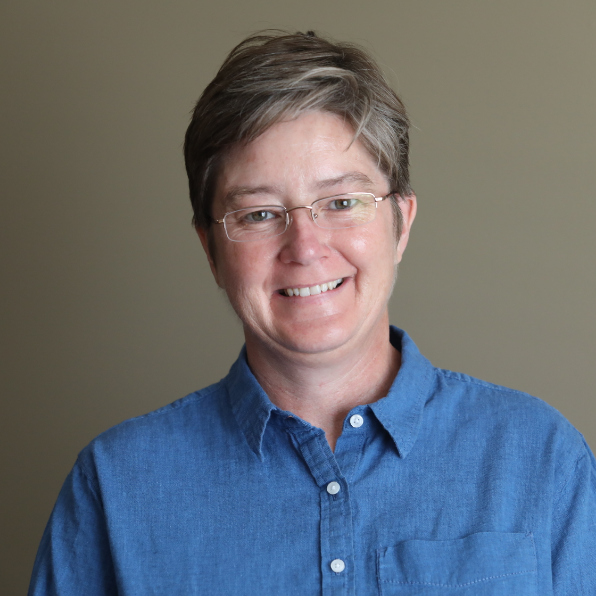
Rebecca Sandefur
"Another group of these problems will result when people run into challenges understanding, accessing and using the various programs meant to help them in hard times — for example, loan deferments, applying for unemployment, taking advantage of moratoria on evictions and foreclosure and the like. And the deaths that result from this public health crisis will themselves create justice problems — probate, inheritance, heir property, access to records, for example — for the survivors of this tragedy.
"The court systems and social and human services organizations in most states are not prepared for this onslaught of troubles and lack sufficient resources to respond. In a few places, notably Utah, the crisis is energizing reform and access to help rather than slowing it down, as the state moves ahead with re-regulation that will open up space for the new kinds of legal services people will so desperately need for the next many months."
Prisons
José Ashford, professor of social work and law and behavioral science, School of Social Work
"Prisons house numerous vulnerable individuals with multiple medical needs in very crowded conditions. The future health of these inmates is prompting prison administrators to make significant changes in policies and practices due to the significant risks posed by COVID-19. COVID-19 is prompting correctional and policy authorities to expand their conceptions of risks to include health risks, which is contributing to the release of nonviolent and select classes of recidivist’s offenders to house-arrest, AI (smartphone monitoring) and other forms of electronic monitoring and supervision.
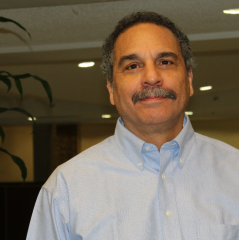
José Ashford
"An important question for many sociologists is whether changes adopted by prison authorities to respond to the overcrowded conditions aggravating the exponential growth of COVID-19 will result in significant changes in prison as a social institution.
"Consequently, one would hope that policymakers would work with sociologists in examining current responses to imprisoned COVID-19 inmates by treating these responses as natural experiments for determining the limits of imprisonment as a strategy for addressing criminal risks for various classes of nonviolent and recidivist offenders."
Immigrant health differential
Eileen Díaz McConnell, professor, School of Transborder Studies
"COVID-19 is having disparate impacts on the health of immigrants. The Migration Policy Institute suggests that perhaps 6 million immigrants are working in jobs related to health and producing food, important functions in the time of the coronavirus. Jobs such as home health care aides, nursing assistants and physicians have relatively high proportions of immigrants working in them. They also are in positions where it is difficult or impossible to follow CDC social distancing guidelines.

Eileen Díaz McConnell
"Meatpacking plants, a place where many undocumented immigrants work, have recently been hit hard by the coronavirus. Farmworkers have also been affected, or are worried about becoming sick in crowded vans or buses on the way to the job site. Jobs that don’t offer paid sick leave, such as these and other jobs, mean that workers might continue to work once they have coronavirus, further spreading the disease.
"Testing for coronavirus costs hundreds of dollars without health insurance, problematic given how contagious coronavirus is estimated to be. Many jobs in which immigrants work don’t provide health insurance coverage, meaning that if they get sick with coronavirus or other illnesses, they aren’t tested or might try to avoid treatment."
Xenophobia
Aggie Yellow Horse, assistant professor of Asian Pacific American studies, School of Social Transformation
"COVID-19 has had significant deleterious effects on multiple aspects of health for Asian Americans – including physical, mental and social health. Given the rise of harassment, violence and hate crimes against Asian Americans deeply rooted in racism and xenophobia, many Asian Americans experience significant fear and stress related to discrimination and physical attacks. Such stress can exacerbate the important mental health issues that existed prior to the pandemic.

Aggie Yellow Horse
"For example, many Asian Americans may fear seeking mental health resources such as counseling. Furthermore, such scapegoating is also significantly affecting the physical health of Asian Americans.
"Many Asian Americans, especially immigrants and elders, are reporting to fear associated with seeking any COVID-19-related health services, even testing, due to fear. Asian Americans are a highly diverse group with different historical and sociopolitical contexts of migration, socioeconomic profiles, culture, language and others; it is important to note that Asian Americans are experiencing an additional layer of health disparities due to the rise of harassment, violence and hate crimes during this pandemic."
Gender crisis
Nisa Göksel, assistant professor of sociology, School of Social and Behavioral Sciences, New College
"The outbreak of COVID-19 has brought sudden, dramatic changes to women’s lives across the globe, data shows. We are seeing an expansion of women’s care work at home and beyond — especially in care sector jobs, such as health care and domestic services. Nonetheless, women are unemployed at growing rates. According to a study from the Institute for Women’s Policy Research, among the 700,000 jobs lost in the U.S. in February and March, 60% were held by women.
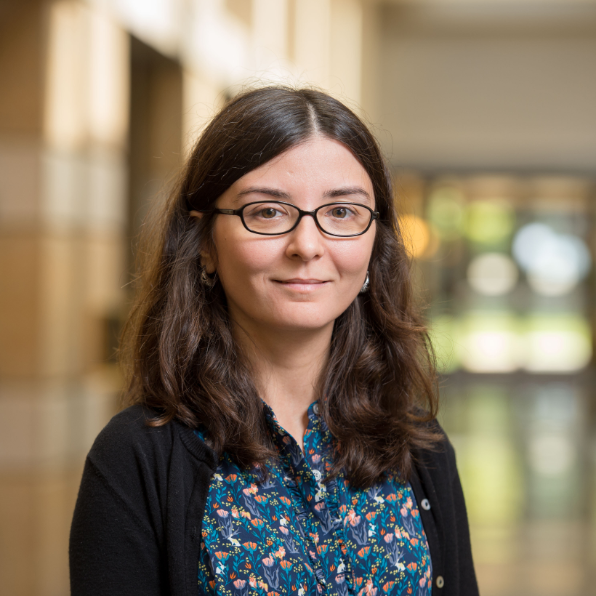
Nisa Göksel
"Domestic violence is also on the rise. According to a study by Erika Fraser, cases of domestic violence have spiked worldwide during the pandemic, with rates tripling in some regions of China. The pandemic, it seems, has created a 'new' gender crisis, or perhaps simply deepened already existing gender inequalities.
"For now, it is hard to foresee what changes the pandemic will bring about for women and other disadvantaged groups. But it’s clear that we will need to take a cue from the global #MeToo movement and strengthen our transnational virtual solidarities, as we face the consequences of a gender crisis whose dimensions are just becoming visible."
Essential and expendable
Mary Margaret Fonow, professor of women and gender studies, School of Social Transformation
"Women are simultaneously more likely to work in essential jobs and more likely to be employed in jobs deemed nonessential or expendable. Essential workers are workers on the front line of providing services and products that maintain the safety and well-being of the general population and include a wide range of occupations in health care, social services, education, transportation, public safety, agriculture and food services, biotechnology, etc. One in three jobs held by women are now deemed essential and women of color are more likely to be employed in essential jobs.
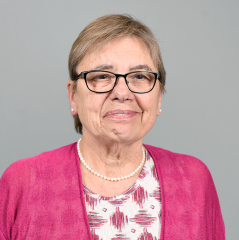
Mary Margaret Fonow
"For example, in the health care sector, which was the fastest growing sector before the pandemic, women make up 77% of the workers placing them at a disproportionately higher level of risk for contacting the coronavirus.
"The pandemic has revealed that job markets are gendered and racialized and that low-wage workers with few rights and benefits are carrying the heavy burden of providing essential services. The work of creating a new labor movement to address these issues will be fueled by the workers now defined as essential. Teachers, nurses, fast food workers and domestic workers were already a major part of revitalizing labor activism in the U.S., and the new face of the labor movement will be at the forefront of a national movement for decent jobs with justice."
Small businesses in crisis
Nancy Jurik, professor of justice and social inquiry, School of Social Transformation
"The COVID-19 crisis has exacerbated challenges for U.S. small businesses so much so that large percentages of businesses throughout the country are in danger of closure. Recent surveys by the National Federation of Independent Businesses reported that 92% of businesses surveyed said they had been negatively affected by the virus, and only 3% said they were better off.
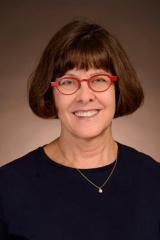
Nancy Jurik
"The March COVID-19 $342 billion small business loan program offered some promise of relief to help small business owners with low interest and forgivable loans to cover up to 8 weeks of their payrolls: the so-called Paycheck Protection Program or PPP. Although Small Business Administration leadership reports that $342 billion in loans were processed in less than 14 days, there are many indications that the program fell short. The fund ran out of money quickly and many businesses were unable to get their applications processed.
"So many small businesses have very few employees: Of the 7.8 million businesses in the U.S., 4.3 million businesses have fewer than 4 employees. Businesses owned by women, immigrants and people of color are disproportionately located in these smaller categories. The aid provided for nonpayroll expenses — e.g., rent, utilities — in the federal program, even including the SBA Disaster Relief Fund, is not enough to keep many small businesses going."
Emir Estrada, assistant professor of sociology, School of Human Evolution and Social Change
"The fight to legalize street vending in Los Angeles has been a long and arduous battle. In 2018, two years after decriminalizing street vending, Los Angeles finally legalized this informal occupation, giving over 50,000 street vendors the opportunity to obtain the right to legally work. Amid the current pandemic, L.A. councilmembers approved an emergency motion to cease street vendors without a permit. This is problematic because the majority of the street vendors are still without a permit.

Emir Estrada
"Vendors have endured these kinds of over-policing tactics before. When I conducted my three-year sociological study with Latinx child street vendors in L.A., I saw family members get fined, detained, and I even heard stories of family members getting deported. Over 60% of informal workers in L.A. are undocumented and the majority of the vendors are women.
"In my research I found that many of these vendors are also children who work to make a living together alongside their parents. During my field observations, I saw many women and children running and hiding from the police while their wares got confiscated and their food got thrown away. Today, even after street vending has been legalized, street vendors continue to be among the most vulnerable workers as a result of COVID-19. For them, violating the newly passed policy could result in a criminalized act similarly to how it was prior to 2016."
Perspective
Craig Calhoun, University Professor of Social Sciences
"Perhaps the most basic sociological theme is how everything in society is connected, as health care is connected at once to having a job and insurance, to the financial system, to the education of professionals, and to providing protective equipment and other support to dedicated workers.

Craig Calhoun
"Sociologists study similar patterns in other institutions, like criminal justice, education, media and business. All have changed with the growing complexity and scale of society — and with more specific patterns like a declining role of religion and a growing role of for-profit corporations. And all have been disrupted by the pandemic.
"We can ‘open up’ and we can achieve more stability, but our path forward cannot be a simple ‘return to normal.' Social change will continue. Efforts to shape it and choose our future depend crucially on sociological knowledge."
Top image courtesy Gerd Altmann, from Pixabay.
More Health and medicine

Reducing waste in medical settings
Health care saves lives, but at what cost? Current health care practices might be creating a large carbon footprint, according to ASU Online student Dr. Michele Domico, who says a healthier…

ASU offers bilingual counseling to Spanish speakers
Arizona is one of the five states in the nation with the highest percentage of Hispanic residents, according to the U.S. Department of Health and Human Services Office of Minority Health, and …

College of Health Solutions launches first-of-its-kind diagnostics industry partnership to train the workforce of tomorrow
From 2007 to 2022, cytotechnology certification examinees diminished from 246 to 109 per year. With only 19 programs in the United States, the cytology workforce that stands at the front line of…


